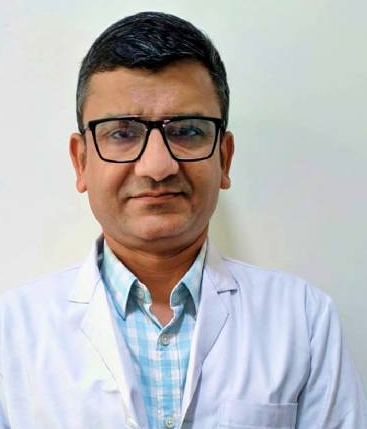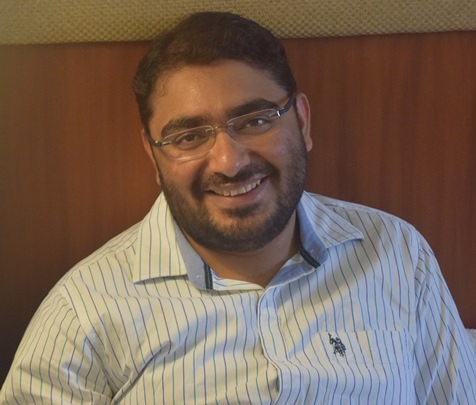What is PRP Injection Knee Cost in India?

Quick Summary
- Platelet-rich plasma (PRP) injection is an increasingly popular form of regenerative medicine. It involves the injection of a concentrated solution of autologous platelets into injured tissues to improve healing and restore function. PRP injections have been used for many applications, including knee injuries. The treatment stimulates healing by releasing growth factors that promote the formation of new tissue.
- When it comes to the PRP injection knee cost in India, it can differ widely depending on the type of injury being treated and where you are located. The exact price of the injection will depend on the intensity of the injury and the type of clinic or hospital you go to. Generally, PRP injection for knee injuries will cost around Rs 10,000 to Rs 50,000 per injection. It is important to note that PRP injections are not yet covered by insurance in India and must be paid for out of pocket.
- When considering the PRP injection knee cost, you should also consider the value of the treatment. PRP injections promote healing within the knee joint and may also be able to help avoid the need for more invasive and costly treatments such as surgery.
Table of Contents
- How does PRP Injection Benefit Osteoarthritis (knee disorder)?
- Types of Knee Disorders That Can Be Treated With PRP Injection
- What Happens in The PRP Injection Treatment?
- Factors Affecting PRP Injection Cost For Knee
- PRP Injection Cost in Different Locations
- Conclusion
- Frequently Asked Questions
- References
Platelet-rich plasma (PRP) injection is an increasingly popular form of regenerative medicine. It involves the injection of a concentrated solution of autologous platelets into injured tissues to improve healing and restore function. PRP injections have been used for many applications, including knee injuries. The treatment stimulates healing by releasing growth factors that promote the formation of new tissue.
When it comes to the PRP injection knee cost in India, it can differ widely depending on the type of injury being treated and where you are located. The exact price of the injection will depend on the intensity of the injury and the type of clinic or hospital you go to. Generally, PRP injection for knee injuries will cost around Rs 10,000 to Rs 50,000 per injection. It is important to note that PRP injections are not yet covered by insurance in India and must be paid for out of pocket.
When considering the PRP injection knee cost, you should also consider the value of the treatment. PRP injections promote healing within the knee joint and may also be able to help avoid the need for more invasive and costly treatments such as surgery.
Overall, PRP injection knee cost in Hyderabad and Delhi can be a significant expense, but the potential benefits of the treatment far outweigh the cost. PRP injection may be the right choice if you want a safe and effective way to improve healing and reduce pain.
Download our App today to plan your surgery seamlessly and stress-free!
How does PRP Injection Benefit Osteoarthritis (knee disorder)?
Platelet Rich Plasma (PRP) is a safe and effective treatment option, which requires taking a sample of your blood and then re-injecting it into your knee area. It helps to reduce inflammation and stimulate the healing of damaged tissue. If you experience a knee disorder such as osteoarthritis, your doctor may suggest a PRP injection to relieve pain and improve mobility.
Benefits of PRP Injection For the Knee:
- Stimulates the body's natural healing ability: PRP injection encourages the body to heal by activating the patient's natural healing mechanisms. It helps to protect the knee from further damage and can reduce the need for surgery. The growth factors in PRP help tissue repair and regeneration, leading to improved function and reduced pain. Often it is used in conjunction with other treatments for maximum benefit.
- Reduces inflammation and pain: PRP injection can reduce inflammation and therefore reduce pain in the knee joint. It helps to improve mobility and allows the patient to enjoy a better quality of life. You never have to suffer from pain and discomfort again! It is an effective treatment for safely relieving pain.
- Fast and effective results: Most people can expect to experience positive results within three weeks of their first injection. Results may vary depending on the individual and the severity of their condition, but they can usually expect improvement in pain and mobility.
- Helps regenerate damaged cartilage: When cartilage in the knee joint breaks down due to wear and tear, it can cause pain and stiffness. PRP injection has been proven to help promote cartilage regeneration, which can help to reduce pain and improve knee flexibility. Hence, it can be an effective treatment for knee disorders.
- Enhances recovery from injury or surgery:
- PRP injection can speed up the recovery process for injuries or surgery of the knee area. It helps to reduce inflammation and swelling around the area, as well as reduce the risk of infection.
- PRP injection can effectively treat knee disorders such as osteoarthritis. Osteoarthritis, or OA, is a common form of arthritis affecting millions worldwide. It can be painful and debilitating, so finding effective treatments for this condition is essential.
- The injection stimulates the body’s natural healing process by increasing circulation to the area, promoting new cell growth and tissue regeneration. This can lead to increased flexibility and reduction of pain. It depends on your individual needs, so discussing any treatment options with your doctor is essential.


Types of Knee Disorders That Can Be Treated With PRP Injection
PRP injections are used to treat a range of knee disorders. The most common ones include the following:
- Osteoarthritis: This is a common form of arthritis affecting millions across India. It is caused by the breakdown of joint cartilage, resulting in reduced joint function. Symptoms include pain, stiffness, and swelling in the affected joint.
- Ligament Injuries: Injuries to ligaments can occur due to sports or physical activity, leading to joint instability and pain. These are commonly referred to as "sprains" or "strains".
- Cartilage Damage: Cartilage deterioration can lead to "wear and tear" in the joints, resulting in pain and reduced mobility. It is also commonly associated with osteoarthritis, which can be managed with PRP injection therapy.
- Tendon tears: Tears in the tendons around the knee can cause pain and difficulty walking. There are various treatments available to repair torn tendons.
- Other joint disorders: PRP injection therapy can also help with knee conditions such as bursitis, meniscus tears, and tendonitis.
- Meniscal tears: These are tears in the cartilage that helps cushion the bones in your knee. It can cause pain and difficulty with movement due to the instability it creates.
- Ligament sprains: Sprains of the ligaments can cause pain and swelling. There are various treatment options for this, including PRP injection therapy.
- Bursitis: This is where the bursae, fluid-filled sacs that cushion the bones, become inflamed.
What Happens in The PRP Injection Treatment?
The PRP injection treatment is a relatively simple procedure. The patient's blood will be collected and placed into a centrifuge, where it spins to separate the platelets and the other components. The concentrated platelet-rich plasma is injected directly into the affected area of the knee.
The PRP injection treatment is usually done under local anaesthesia and takes about 30 minutes to complete. The time period of the procedure depends on the size and severity of the injury or condition being treated.
The treatment usually takes up to four weeks, and the patient should experience some relief in the affected area after a few days. You need to ascertain the PRP injection knee cost before taking the treatment.Factors Affecting PRP Injection Cost For Knee
The cost of PRP injection for the knee depends on a few factors, and the price can vary from one clinic to another. Check out the common factors that affect the cost of PRP injection are:
- Type of doctor or practitioner providing the treatment: The experience, qualifications, and reputation of the doctor or practitioner performing your PRP injection can affect the cost.
- Location: The cost of PRP injections for the knee varies depending on the city or state where you are getting your treatment. For example, a PRP injection knee cost in Hyderabad or Delhi will be more than other parts of India.
- Number of treatments required: The cost of PRP injections also depends on the number of treatments you need. Generally, more than one session is necessary to achieve desirable results.
- Type of PRP injection: Different types of PRP injections have different costs depending on the ingredients used in the treatment. Higher-quality products and components will cost more than lower-quality ones.
- Type of clinic/hospital: The cost may also vary depending on whether you are getting your treatment done at a hospital or in a private clinic. You may find that the cost is lower in a private clinic compared to a hospital.
- Additional costs: In some cases, additional costs, such as laboratory testing fees and medical supplies, may also be added to the total cost of your PRP injection treatment.
Ultimately, it's up to you and your doctor/practitioner to decide on the most suitable and effective treatment option for your knee and the cost of that treatment.
PRP Injection Cost in Different Locations
| City | Cost |
| Hyderabad |
Rs.8000-Rs.10000 |
| Delhi |
Rs.10000-Rs.12000 |
| Chennai | Rs.12000 - Rs.15000 |
| Mumbai | Rs.15000- Rs.17500 |
| Bangalore |
Rs.20000- Rs.25000 |
The PRP injection cost may vary from city to city and depends on various factors such as the type of treatment, the specialist's experience and expertise, the clinic facility, and so on. It is essential to consider these factors as you choose the best treatment for your knee.
It is also important to remember that PRP injections are not covered by insurance in all states, so you should always ask your doctor or insurance provider if the treatment will be covered before you proceed.
Conclusion
Overall, the PRP injection knee cost in India will depend on different factors that play a major role in deciding the cost. Generally, the PRP injection knee cost can range from Rs 5,000 to Rs 20,000. Consulting a doctor and getting an accurate diagnosis is essential before undergoing any medical procedure.
At HexaHealth, we understand the importance of quality care and are committed to offering the best treatment at an affordable cost. We always strive to ensure that our patients receive top-notch medical care without putting a strain on their pockets. We have experts who will find you the best possible deal and ensure you receive the highest quality care. Get in touch with us today to get a personalised quote for your PRP injection knee cost in India. We look forward to helping you get the best possible care!
Download our App today to plan your surgery seamlessly and stress-free!
Frequently Asked Questions
How much does PRP injection knee cost in India?
The cost of PRP injections in India may vary depending on the clinic or hospital but typically ranges from around Rs.15,000 to Rs.35,000. The PRP injection knee cost in Hyderabad and Delhi may also vary depending on the clinic or hospital.
How many PRP injections are required for the knee?
Is PRP better than knee surgery?
It depends on the individual case. PRP injections are typically used to treat mild to moderate conditions, whereas knee surgery is usually reserved for more severe injuries or conditions.
Is PRP worth it for knee pain?
In many cases, yes. PRP injections are effective in relieving knee pain caused by various conditions like osteoarthritis.
How long does PRP last in the knee?
The effects of PRP injections typically last for 6-12 months, though some patients may experience longer-lasting relief.
Can I walk after the PRP injection in my knee?
Yes, you can walk after a PRP injection, but following your doctor's instructions is important.
Can I run with no cartilage in the knee?
It is not recommended to run with no cartilage in the knee. It is best to speak with your doctor or physical therapist about what activities you can do.
Does PRP have side effects?
PRP is a safe and natural procedure with few reported side effects. Some people may experience localised inflammation or bruising at the injection site.
Do you need to rest after the PRP injection?
Yes, it is important to rest after a PRP injection. You should follow your doctor's instructions for rest with generally, the recovery time after PRP treatment being 4 to 6 weeks.
Can PRP regrow knee cartilage?
PRP injections can help stimulate cartilage growth and repair, but it is not guaranteed to regrow lost or damaged tissue.
Why is PRP so painful?
PRP injections can be slightly painful, as the injection needle is very thin. However, this discomfort should subside after the procedure.
Can PRP make knee pain worse?
Can PRP cause nerve damage?
No, PRP injections are not known to cause nerve damage.
How can I regrow my knee cartilage naturally?
Several natural methods can help to regrow cartilage in the knee. These include avoiding high-impact activities, staying active, and eating a healthy diet. Supplements such as glucosamine and chondroitin may also help.
How can I heal my knee without surgery?
In many cases, knee pain can be managed without surgery. Non-surgical treatments such as physical therapy, PRP injections, and medications can be used to decrease pain and inflammation.
Can I rebuild the cartilage in my knee?
Yes, you can rebuild cartilage in your knee. PRP injections and other treatments, such as physical therapy and medications, can help to stimulate cartilage growth and repair.
Can PRP go wrong?
No, PRP injections are generally safe and effective. However, speaking with your doctor before starting any treatment is essential.
Who should not do PRP?
PRP injections are not suitable for everyone. People with certain conditions, such as cancer, Hepatitis C, and HIV AIDS, should not receive PRP injections.
Can PRP cause blood clots?
No, PRP injections are not known to cause blood clots. It does not contain any substances that could increase the risk of blood clots.
Does PRP help knee arthritis?
Yes, PRP injections can be used to treat knee arthritis. It may help reduce pain and inflammation and stimulate cartilage growth and repair.
Can I do PRP every week?
No, PRP injections should not be done more than once a month. It is essential to follow medical instructions for how often to receive the injections.
Who is a good candidate for PRP?
Is PRP better than cortisone?
It depends on the individual case. PRP injections and cortisone injections can both be effective treatments for knee pain, but they may work better for different people.
What should I eat before PRP treatment?
How long is recovery after PRP injection?
Recovery time after a PRP injection can vary from person to person but typically lasts about two weeks. It is essential to follow your doctor's instructions for how long you need to rest and how much activity you can do during this time. You should take rest for at least 4 weeks post-treatment.
What is the rate of success in PRP injections?
Studies have shown that PRP injections can effectively treat knee pain and inflammation. The success rate differs in individuals, depending on the individual's condition and response to treatment as well as locations. For example, PRP injection knee cost in Delhi may vary from that in Delhi or other parts of India.
Can PRP heal a torn meniscus?
Yes, PRP injections can help to heal a torn meniscus. The injections can help reduce pain and swelling and may also stimulate healing in the damaged tissue.
What should I do after knee PRP?
After your PRP injection, you will likely need to rest and avoid strenuous activity for 4-6 weeks. You should also follow your doctor's instructions for any medications or physical therapy that you need to do.
Last Updated on: 6 September 2023
Reviewer

Dr. Aman Priya Khanna
MBBS, DNB General Surgery, FMAS, FIAGES, FALS Bariatric, MNAMS General Surgery
13 Years Experience
Dr Aman Priya Khanna is a highly experienced and National Board–Certified Laparoscopic, GI, and Bariatric Surgeon with over 13 years of clinical expertise.
He is widely regarded as one of the best bariatric surgeons in Ahmedabad, ...View More
Author

Rajath R Prabhu
MSc. Clinical Research I PG Diploma in Public Health Services Management
3 Years Experience
His work in medical content writing and proofreading is noteworthy. He has also contributed immensely to public health research and has authored four scientific manuscripts in international journals. He was assoc...View More
Expert Doctors (10)
NABH Accredited Hospitals (5)
Latest Health Articles
Related Treatments




























 Open In App
Open In App